MercoPress. South Atlantic News Agency
Tag: argentina elections
-
Tuesday, October 8th 2024 - 10:55 UTC
Peronist Party in search of a new (or old) leader

After former President Alberto Fernández was forced to resign as chairman of the Peronist Party given the domestic violence and corruption scandals in which he is involved, the vacancy opened up a new front that may well decide the future of Argentine politics in the years to come. While former President Cristina Fernández de Kirchner intends to fill the void, La Rioja Governor Ricardo Quintela came forward as a new option.
-
Monday, October 2nd 2023 - 10:49 UTC
No clear winners after first presidential debate in Argentina

The first presidential debate between the five contenders for the Argentine presidency was held on Sunday in Santiago del Estero, without any of the candidates outperforming the others. However, Patricia Bullrich of the opposition coalition Juntos por el Cambio (JxC) was criticized for her stiffness on stage and for failing to explain how she would bring about the changes the country so desperately needs.
-
Tuesday, September 5th 2023 - 11:30 UTC
Argentina: There is no stopping Milei, poll shows

Libertarian Congressman Javier Milei remained the top contender for the Oct. 22 presidential elections, according to a survey by the consulting firm Opinaia released Monday in Buenos Aires.
-
Monday, August 21st 2023 - 11:23 UTC
Argentina: Who can fix the political and economic problems?
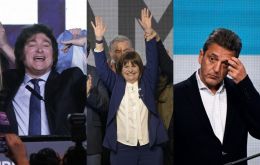
To most people's surprise, the divisive libertarian populist Javier Milei won Argentina's presidential primary. Milei took around 30% of the vote, triumphing in 16 out of the country's 24 provinces.
-
Thursday, August 10th 2023 - 11:37 UTC
Killing of 11-yr-old girl halts all political rallying in Argentina
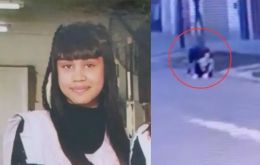
All candidates, presidential or otherwise, have suspended their campaign closing rallies for Sunday's Simultaneous, Open, and Mandatory Primary (PASO) elections after Morena Domínguez, an 11-year-old girl, was killed Wednesday when motorbike robbers took her backpack at 7.20 am on her way to school in Lanús, a municipality in the province of Buenos Aires just south of the Argentine capital.
-
Monday, May 15th 2023 - 10:49 UTC
Three governors reelected in Argentina
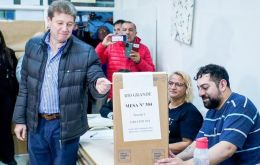
The governors of the Argentine provinces of La Pampa, Salta, and Tierra del Fuego were reelected Sunday. Meanwhile and following a Federal Supreme Court ruling, San Juan and Tucumán had to postpone their gubernatorial elections, but the former voted for local authorities anyway, while the latter adjourned the process altogether.
-
Tuesday, May 9th 2023 - 10:48 UTC
Argentina: Milei picks Vice-Presidential candidate
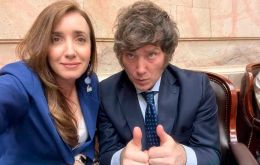
Argentine Libertarian Deputy Javier Milei has announced that fellow Congresswoman Victoria Villarruel will be his running mate.
-
Monday, May 8th 2023 - 11:16 UTC
Ruling parties are reelected in 3 Argentine provinces
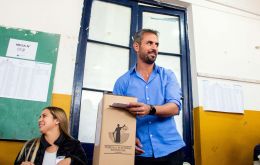
Three Argentine provinces held gubernatorial elections on Sunday. In all of them, the ruling parties were reelected. In a year with presidential elections looming, these results were expected to shed some light on who might make it to the Casa Rosada next December 10, but nothing of the sort happened.
-
Friday, April 28th 2023 - 10:59 UTC
Argentina: CFK announces no candidacies

Argentine Vice President Cristina Fernández de Kirchner (CFK) made no announcement regarding the upcoming presidential elections during her appearance Thursday at a La Plata theater for the ceremony marking the opening of the Néstor Kirchner Institute. Following last week's declaration by President Alberto Fernández that he would not seek reelection, all eyes are focused on her next move.
-
Saturday, April 22nd 2023 - 10:55 UTC
Argentina: Ruling coalition welcomes President Fernández's announcement
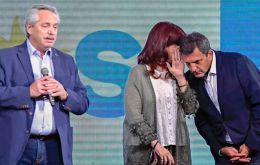
Argentine President Alberto Fernández's announcement that he would not seek reelection was welcomed within the ruling Frente de Todos (FdT) coalition, which now has the opportunity to submit several candidacies to be decided upon at the Aug. 13 Open, Mandatory and Simultaneous Primary (PASO) elections.
